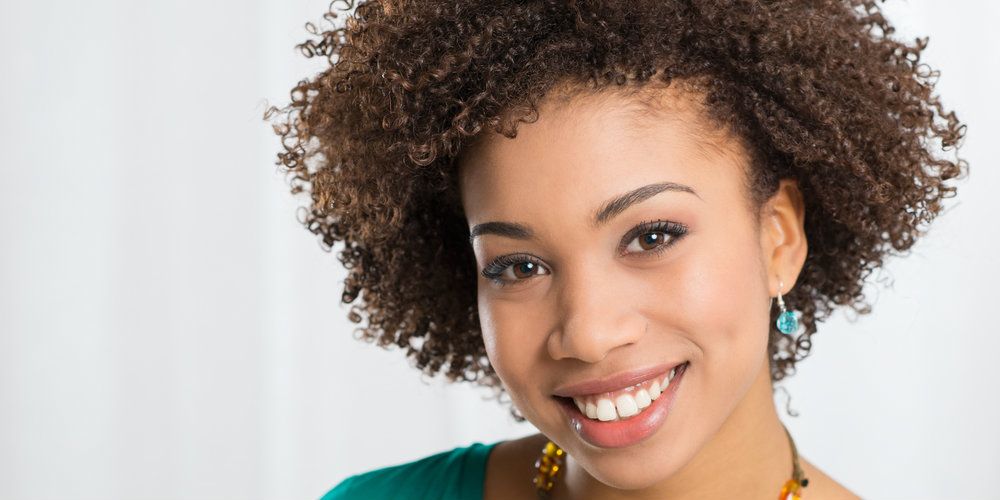On the Invisibility of Black Women and Girls

I was socialized within a southern tradition - pumped out to be a "good," southern Black girl who listened to her mommy and daddy, came in on time, and loved her Jesus. I know the good girl narrative well, and I played it better. But, I still wondered. I wondered why being a good girl didn't do what it was supposed to. I wondered why being a good girl, by all of society’s imposed means, didn't save me from myself: my-Black, invisible woman-self.
I now know that following rules doesn’t necessarily deem you worthy of a voice, a presence, nor respect. But, it does place you in a box - a box constructed of soundproof, glass walls that drown out your screams, your sacrifices, your negotiations, and your experiences. I also know that I don’t stand alone in this box, but along side numerous other Black women, both of the past and present.
Historically and contemporarily, Black women have navigated American spaces unseen, caught between the poverty of Blackness on one side, and the poverty of womanhood on the other. This has, at times, been manipulated into something advantageous as with the case of the Black Communist party in Alabama during the 1930s. Here, we see Black women posing as laundry workers, drawing on their invisibility by smuggling Communist propaganda in laundry baskets for distribution. However, the intersectional positioning of Black women on the losing teams in terms of both race and gender has largely been an uphill battle.
Equality still remains a fleeting prospect in the walls of the classroom, the workplace, the prison houses, the White House, and even our homes. And yes, so much has transpired and so much progress has been made with monumental advances such as the Civil Rights and Equal Pay Acts of 1964. However, and quite paradoxically, the same equality that liberates Black men and White women suppresses us.
We are suppressed by the weight of being okay and just fine. But Black women and girls are not okay, and we are not just fine. Attempting to be so and navigating life under this umbrella justifies our neglect and our invisibility.
And if not for us, then for the little girls of color who are just fine. The little girls of color who sit in classrooms across the country, under the same pressures as their brothers, but are ignored and are invisible. The little girls of color who are neglected in mainstream educational campaigns such as the school-to-prison pipeline and My Brother’s Keeper, but are similarly on a school-to-nowhere pipeline and have no keeper. And although education is correctly identified as a racial issue, the consequences of dropping out and a lack of education is ultimately more detrimental for Black girls as the long-term repercussions, such as wealth disparity are both racially and sexually compounded.
And if not for us or the little girls of color, then for the Black female workers who are just fine. The Black female workers who sit in workplaces across the country, earning the least across all races and genders, but are ignored and are invisible. The Black female workers who are expected to only generate $5 of median wealth in their prime years. The Black female workers who disproportionately lead single head of household homes with net worth of $100, going into debt for common household necessities.
And if not for us or the little girls of color or the Black female workers, then for the incarcerated women of color who are just fine. The incarcerated women of color who sit in cells across the country at disproportionate rates to their White counterparts, but are ignored and are invisible. The incarcerated women of color, ripped from their homes and many from their roles as the primary caretakers of their children prior to their incarceration. The incarcerated women of color who have, and often silently, been the victims of rape, sexual assault, child abuse, and domestic violence.
And if not for us, the little girls of color, the Black female workers, or the incarcerated women of color, then for the Black mothers, daughters, sisters, aunts, girls and women already came and to come who have been and will be told they are just fine. Those already came and to come who have and will sit in classrooms, workplaces, and a variety of other spaces around the country, but were and will be ignored and invisible.
Assert your visibility when and where you enter and press against those who cloak your experiences in invisibility. I, you, them, they, us, we deserve to be seen, to make noise, and to stir up. You deserve to be heard, and you deserve to be a problem. You, Black woman, deserve to be visible.
Photo Credit: Shutterstock
Krislyn Domingue is a rising sophomore, Sociology & Anthropology and Comparative Women’s Studies double major at Spelman College in Atlanta, Georgia. She enjoys reading, writing, and sipping Chai Tea. Email: krislynshonte@gmail.com; Twitter: @krislynsd.

No comments: